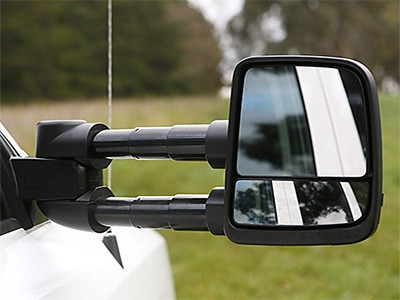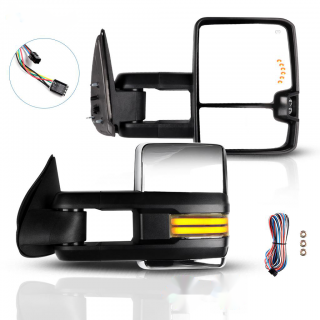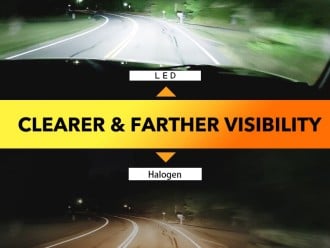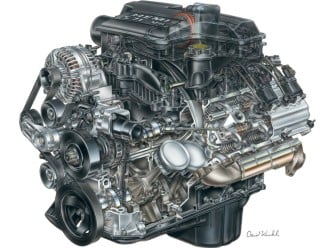Rearview mirrors play a vital role in vehicle safety, providing drivers with an essential view of their surroundings. Dedicated towing mirrors come into play when towing a trailer or large loads. In this article, we'll explore the key differences between towing mirrors and regular mirrors.
Enhanced Visibility: Common rearview mirrors commonly found on vehicles are designed to provide adequate rearward visibility. However, they often fall short when towing due to the increased size and width of the towed load. On the other hand, towing mirrors provide enhanced visibility and are specifically designed to accommodate wider and longer trailers or objects being towed. These larger mirrors extend outward, allowing the driver to see beyond the sides of the trailer, minimizing blind spots and improving overall visibility.
Adjustable Extension: Unlike regular mirrors, towing mirrors usually feature adjustable extensions. This adjustability allows the driver to extend the mirror horizontally to match the width of the trailer or load being towed. By aligning the mirror with the outer edge of the trailer, the driver can effectively monitor any potential hazards or obstacles that may exist next to the object being towed. The adjustable extensions ensure optimum visibility no matter the size or width of the load.

Stability and Durability: Considering the extra weight and wind resistance from towing, stability becomes a key factor for the mirror. The towing mirrors are designed with durability and stability in mind, ensuring they stay securely in place in a variety of driving conditions. They are made of strong material to hold them securely in place. In contrast, conventional mirrors may not have the same level of sturdiness, potentially causing vibration or misalignment during towing.
Legal Compliance: In many jurisdictions, proper towing mirrors are required by law when towing a trailer or other large load that obstructs the driver's rear view. Ordinary mirrors may not comply with the specified size and visibility regulations for safe towing, which may result in penalties or fines. Towing mirrors are specifically designed to meet these legal requirements, ensuring compliance and promoting safer road use when towing a vehicle.
Conclusion: Towing mirrors and ordinary rearview mirrors have different purposes in the field of vehicle safety. Although regular rearview mirrors can meet the general rearview vision needs, towing mirrors can provide enhanced visibility, adjustable extension to accommodate wider loads, stability, durability, and legal compliance. Understanding these differences is critical for drivers who regularly tow trailers or large objects, as using the proper mirrors ensures optimal visibility, minimizes blind spots and promotes a safer towing experience.












